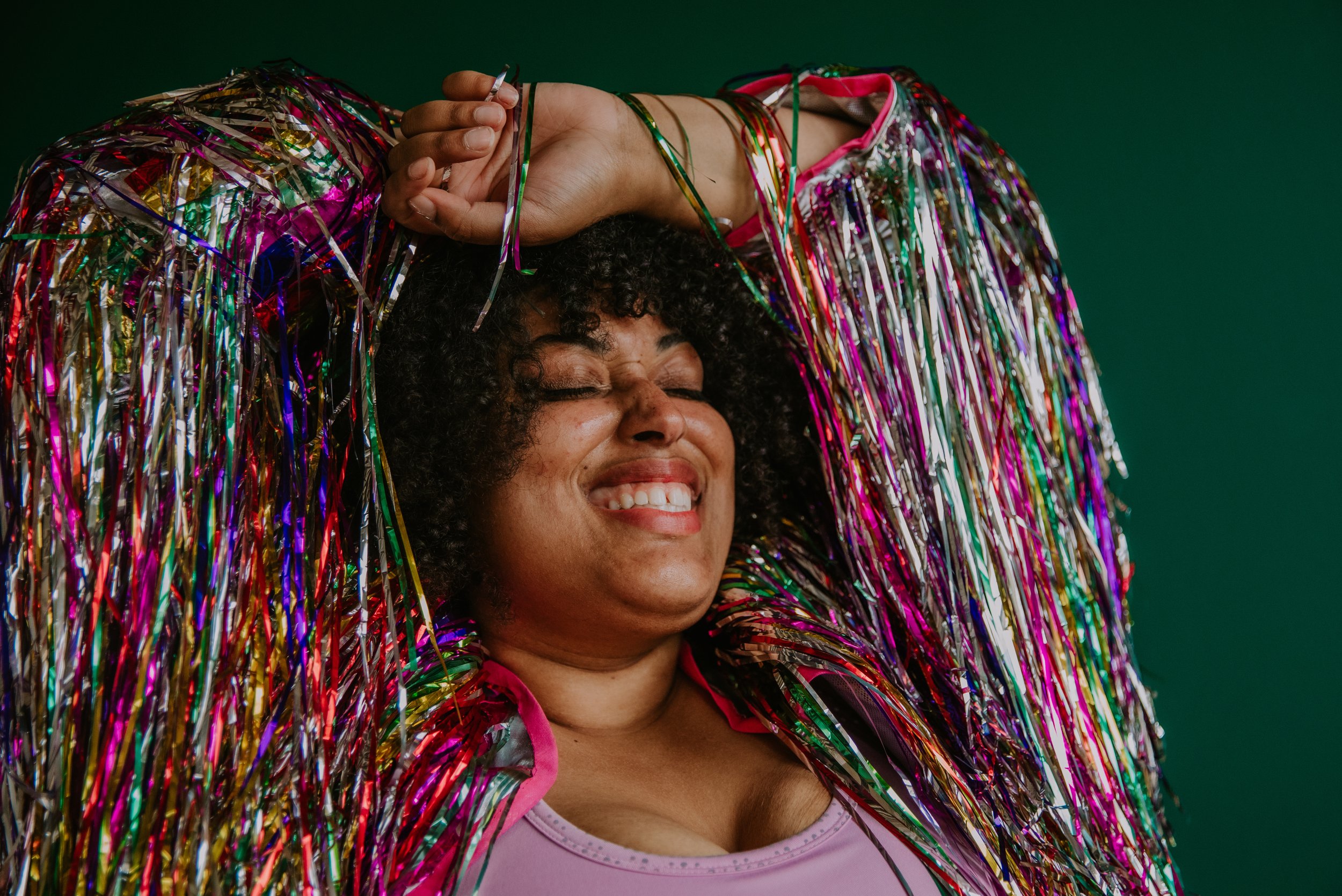I spent years feeling invisible. Now, I help brands ensure no one else does.
A business starts with a mission, and mine has always been clear: I want all bodies to have access to the things that bring them joy. But before I could help others, I had to embark on my own journey of healing. My recovery from binge eating disorder has been a pivotal part of my life’s work, shaping how I show up for myself and for others.
For much of my life, I felt invisible. As my body grew larger, the world seemed to push me further into the shadows. I longed to feel accepted, to be seen as worthy, but instead, I often felt dismissed and shunned. Binge eating disorder had a strong grip on me, a cycle of shame, secrecy, and self-soothing that felt impossible to break.
My healing began when I found the courage to put my experience into words.
Writing was my refuge, my way of processing what I had been through. And it wasn’t just in the pages of a private journal—I shared my story publicly, first in Self magazine and then in three books. Gorge: My Journey Up Kilimanjaro at 300 Pounds was my breakthrough, a testament to both my struggles and my resilience. It gave me a platform, but more importantly, it gave me purpose.
For so long, my binge eating had been a secret, something I hid from the world. But every word I wrote, every story I shared, chipped away at the shame. Writing allowed me to build self-compassion and understanding, to see my disorder not as a personal failing, but as something I could confront and heal from.
Then, I found my voice in another way—I started speaking.
I was invited to share my story at colleges and universities like Dartmouth, Purdue, the University of Hawaii-Hilo, Montana State, and more. Each time I spoke, I connected with others who had felt the same pain, the same isolation. I saw firsthand how powerful it was to say, "You are not alone."
That journey led me to the Eating Recovery Center, where I spoke to professionals and eventually managed Binge Eating Connection, an online community of over 100,000 individuals navigating their own recovery. In that space, I witnessed the power of shared experiences, the comfort in knowing that healing is possible.
My voice, once silenced by shame, had become my greatest tool for change.
Of course, recovery is not a straight path. There are setbacks, struggles, and moments of doubt. But I have surrounded myself with a community that reminds me of what truly matters. When old thoughts creep in—self-judgment, anxiety, fear—I hear my former therapist’s voice gently asking, “Is it true?” That simple question grounds me, reminding me to challenge the narratives that no longer serve me.
This isn’t a story about being “cured” and moving on. It’s about building a life in recovery, a life where I use my experiences to help others feel seen, heard, and valued. It’s about recognizing that while binge eating disorder is part of my story, it does not define me. My recovery does.
Recovery has given me the strength to make bold moves. It has allowed me to challenge industries that have long excluded people in larger bodies. It has fueled my mission at The Gorgeous Agency, where we help brands embrace body inclusivity and create spaces where all people feel welcome.
The agency stands firm on a simple truth: we love people where they are. That’s how we lead—with love, with purpose, and with the unwavering belief that everyone deserves to take up space, to be seen, and to experience joy.


